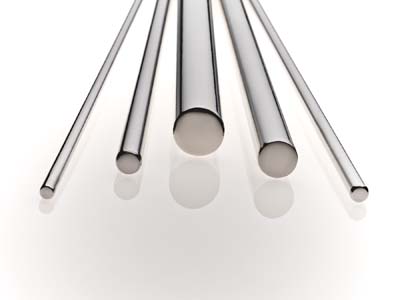Temper Tough Alloy
Temper Tough Alloy
Carpenter Technology Corp. has developed a new ultrahigh-strength steel (UHSS) alloy that is a lower cost alternative to many cobalt-containing precipitation hardenable alloys.

Carpenter Technology Corp. has developed a new ultrahigh-strength steel (UHSS) alloy that is a lower cost alternative to many cobalt-containing precipitation hardenable alloys. Temper Tough alloy is an air-melted, cobalt-free quench and tempered alloy that has a unique combination of high strength and high toughness attributes that may allow designers and engineers to achieve an extended cycle life where components are under high loads with constant stress of intense, repetitive motion.
This alloy is a readily available, lower cost alternative to cobalt-containing precipitation hardenable alloys for a variety of general purpose tooling, industrial and automotive applications, especially those in which designers may be seeking to lighten the weight and increase the longevity of their products.
Temper Tough alloy is able to attain a typical strength of 290 ksi ultimate tensile strength (UTS). Temper Tough has also demonstrated superior fatigue resistance properties (axial-axial) of 120 ksi (827 MPa) compared to traditional quench-and-temper alloy steels averaging 79-85 ksi (545-586 MPa).
The attributes of Temper Tough alloy make it a candidate for applications in high-demand crank cases, drive trains, power trains, structural members, suspensions, and industrial tooling, especially when designers are looking for affordable solutions to reduce the weight of parts and/or components without sacrificing performance.





